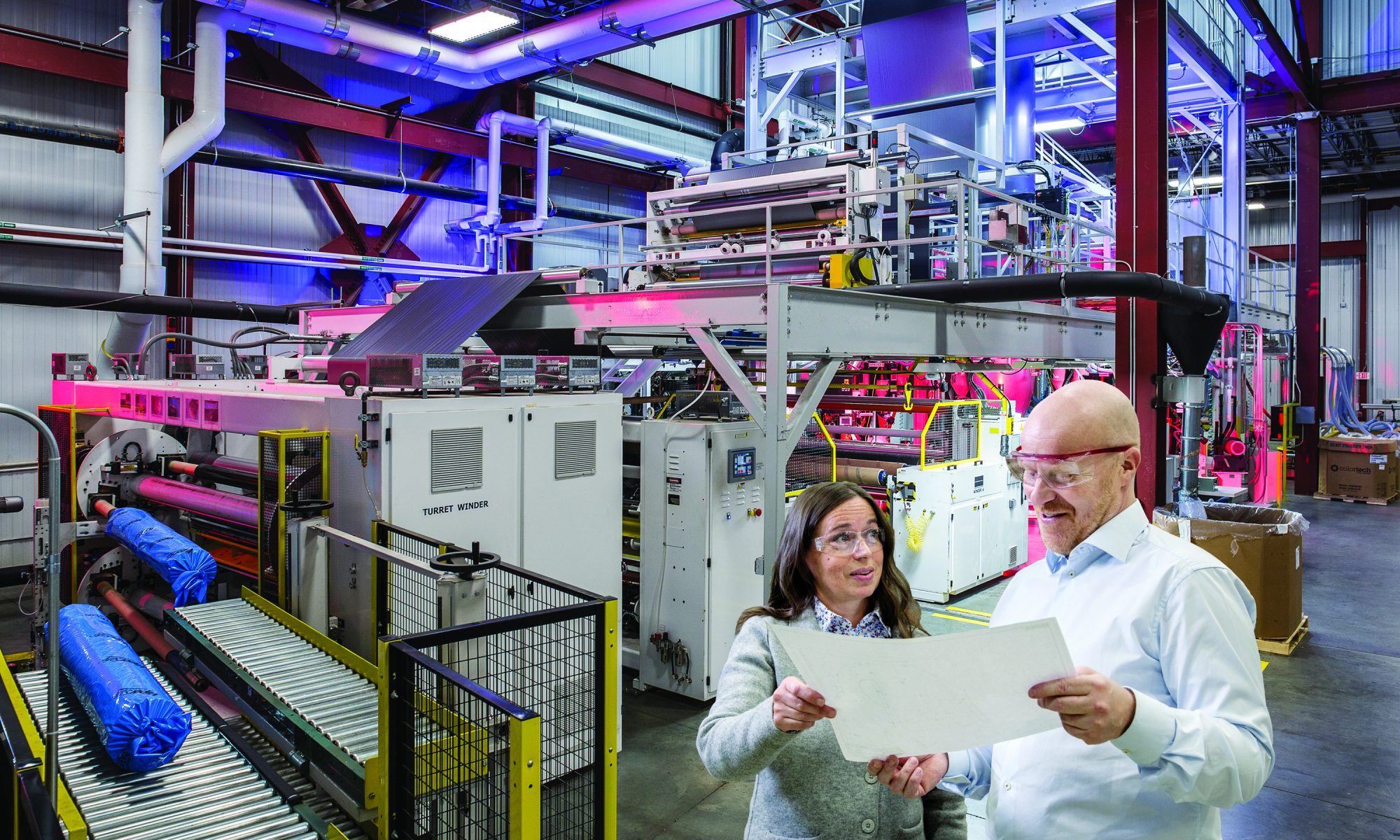 When Tempo Products, Inc. of Fresno, Calif., noticed output rates on their Davis-Standard extruder were two-thirds of capacity and material uniformity was inconsistent, the company realized it was time for a new feedscrew. The problem was, new feedscrews typically have a turnaround of eight or nine weeks; a timeframe Tempo Products could not afford as a company with same-day product shipping. Davis-Standard’s aftermarket team rallied to the call, delivering and installing a new feedscrew within five weeks, restoring production rates and keeping Tempo Products’ tight production timelines on track.
When Tempo Products, Inc. of Fresno, Calif., noticed output rates on their Davis-Standard extruder were two-thirds of capacity and material uniformity was inconsistent, the company realized it was time for a new feedscrew. The problem was, new feedscrews typically have a turnaround of eight or nine weeks; a timeframe Tempo Products could not afford as a company with same-day product shipping. Davis-Standard’s aftermarket team rallied to the call, delivering and installing a new feedscrew within five weeks, restoring production rates and keeping Tempo Products’ tight production timelines on track.
“Like most processors, we are so engaged in keeping up with business and taking care of customers that we overlook periodic feedscrew maintenance,” said Rael Sacks, founder and co-owner of Tempo Products. “We pulled the feedscrew once since purchasing the extruder in 2012, and didn’t have any issues until recently, so we didn’t think about it. Once the new screw was installed, everything was back to normal in five minutes. We pride ourselves on customer service, so being able to avoid production delays is essential.”
Tempo Products uses this extruder to process linear low-density polyethylene and flexible PVC tubing for drip irrigation products sold to major retailers throughout the United States. The company is family owned and Sacks works alongside his sons and business partners, David and Jonathan, to offer a full line of water conservation and drainage products for residential and commercial applications. They sell through distribution channels with a same-day shipping policy for orders that come in before 4 p.m., thus the importance of consistent, high-rate production. The newly installed feedscrew is a replica of the previous screw except with a harder finish.
“We got a lot of mileage out of the first feedscrew, and are grateful Davis-Standard was able to accommodate this rushed delivery. We definitely plan to do more frequent feedscrew and barrel checks to avoid this issue in the future,” added Sacks.
Davis-Standard offers a complete line of aftermarket services to support feedscrew and barrel efficiency. Factors to consider include feedscrew, barrel and drive alignment, barrel heating uniformity, materials being processed, improper barrel support and corrosion. Periodic inspections at 90- to 180-day intervals are recommended. The two primary methods for evaluating feedscrew output loss include the accurate method and approximation method. The accurate method compares current screw output with production benchmark output, which is established upon feedscrew installation. The approximation method involves measuring the feedscrew, calculating the resultant added screw-to-barrel clearance and estimating the output loss from the added clearance. This technique requires approximately 24 hours of downtime while the feedscrew is being removed, cleaned and measured.
Following are the guidelines when using the approximation method. A measurement of .010 to .015 inches (.25 to .38mm) plus the original feedscrew and barrel clearance is indicative of wear, but the condition is not critical. A measurement of .020 to .030 inches (.5 to .76mm) plus the original screw and barrel clearance indicates feedscrew or barrel replacement should be considered. When the measurement reaches .040 to .050 inches (1 to 1.3mm), this is severe wear and it is essential to replace the feedscrew or barrel, or both.
For more information about Tempo Products, visit www.tempoinc.com. For more information about Davis-Standard’s aftermarket capabilities, visit www.davis-standard.com/aftermarket.
